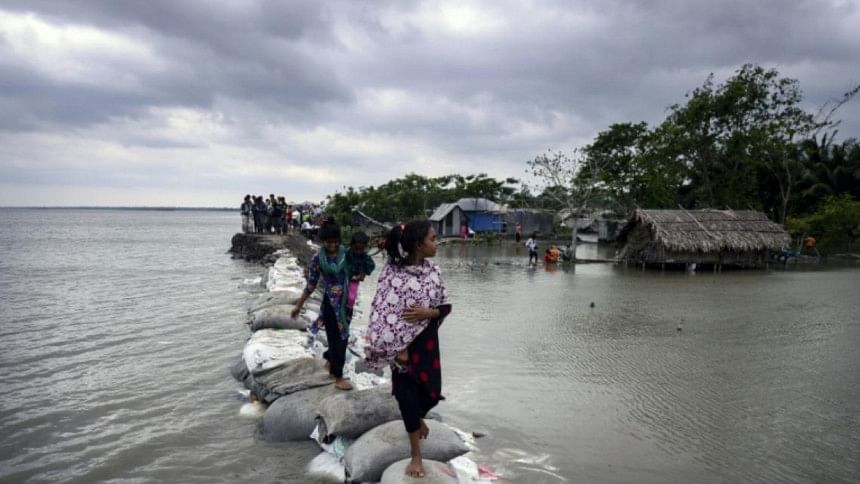A developing partnership between Bangladesh and the UK to tackle climate change

Earlier this month, during the London Climate Action week, my organisation, the International Centre for Climate Change and Development, together with the UK's Royal Geographical Society (RGS) and the Bangladesh High Commission in London, organised a major event with several hundred Londoners, including many British Bangladeshis, themed "Learning lessons from Bangladesh". The speakers included myself; Saida Muna Tasneem, High Commissioner of Bangladesh to the United Kingdom; Saber Hossain Chowdhury, MP and Chair of the Bangladesh Parliamentary Committee on Environment; and Sir David King, former Chief Scientific Adviser to the UK government. The event was moderated by Professor Joe Smith, Director of the RGS.
Hosted by Mayor Sadiq Khan, the London Climate Action Week raised the need to take climate change much more seriously and our event raised the opportunities for the UK and Bangladesh to develop a more strategic bilateral partnership to tackle climate change together going forward.
The first and most immediate opportunity is the fact that Bangladesh has been invited by the UK to join its Action Track on Adaptation and Resilience for the United Nations Secretary General's Climate Action Summit, which will be held in New York this coming September. Prime Minister Sheikh Hasina has accepted the invitation from the UNSG and UK to attend the Climate Action Summit and has offered to make Bangladesh a leader on the Action Plan for Adaptation and Resilience going forward. This should be an excellent foundation upon which the two countries could develop some long-term collaborations.
The second opportunity would be for the UK and Bangladesh to join forces in conducting research on tackling climate change based on a long history of collaborative research between universities in the UK and Bangladesh. This was also a topic of discussion during the event at the RGS and there are many UK-based scientists who are willing to engage in a joint research programme with Bangladesh. A programme as such could address adaptation as well as mitigation, and also promote mutual learning between the two nations. For example, the UK could learn about adaptation from Bangladesh, while we can learn about mitigation from them. The UK can also support the Bangladesh government's plan to set up a centre on adaptation to climate change in Dhaka.
The third element of a bilateral programme between the UK and Bangladesh would focus on the Bangladeshi diaspora in the UK, particularly the second-generation British Bangladeshis who are quite interested in helping their nation of origin. Tackling climate change would, therefore, be an excellent topic to address with them. Organisations like the British Council have a long history of engaging young people from Bangladesh and could easily lead this sort of a programme focusing on youth engagement.
The fourth element of such a programme would include going beyond just Bangladesh and the UK, and invite other countries to share their knowledge and participate in this collaboration. In this regard, the Annual Gobeshona (research) Conference in Dhaka every January would be a good event where we can invite and support participants from the Least Developed Countries (LDCs) to attend and learn from Bangladesh, as well as share their own experiences. UK-based scientists could also become major players in this initiative.
The final opportunity for us would be to aim and hold major events—based on our collaboration with the UK in tackling climate change—during the milestone international conference, 26th Conference of Parties (COP26) of the United Nations Framework Convention on Climate Change (UNFCCC), which is likely to be held in the UK in December 2020 (COP25 this December will be held in Santiago, Chile). If Bangladesh successfully graduates from LDC status in the next few years, we will become ineligible for the grant-based funding that we have traditionally received from the UK. Therefore, a transition towards increased joint research and scholarships for young Bangladeshis to study in the UK is worth considering.
Dr Saleemul Huq is Director, International Centre for Climate Change and Development at the Independent University, Bangladesh.
Email: [email protected]

 For all latest news, follow The Daily Star's Google News channel.
For all latest news, follow The Daily Star's Google News channel. 



Comments